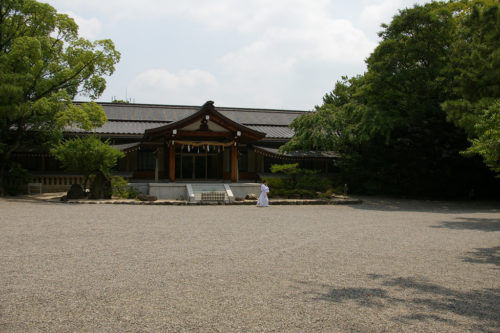
Every country has its own unique customs and cultures regarding daily life, food, and of course business.
Japan is no exception, and what might seem perfectly normal in your home country may be considered disrespectful in the Japanese business scene.
Here we’ll be explaining Japanese work ethics, their office culture, and some tips on how to successfully do business in Japan.
What do you think is the secret to success in Japan? Read on to find out!

Contents
1. Japanese Work Ethics
Some of the elements most associated with Japanese business culture are lifetime employment, seniority-based wage, and favoring “seishain,” or regular full-fledged/permanent employees.
The “Shushin Koyo (Lifetime Employment)” system was introduced in the 1950s, when Japan was entering a period of rapid economic growth, as a means of securing long-term employees.
With this came “Nenko Joretsu (seniority-based wage),” a system in which an employee is promoted according to how many years they have been working at a certain company and proximity to retirement. This concept is the reason why many companies today have age-based hierarchical corporate systems.
A “seishain (regular employee)” is a form of employment unique to Japan. Such employees will work fixed hours and are usually hired without a designated contract period, in other words, they can stay at the same company until they retire.
On the other hand, there are also “non-regular” employees who have comparatively limited contracts. A seishain is often confused with the term “full-time worker,” but Japanese non-regular employees work full-time as well, so they should be seen as different concepts.
Regular employees are given favorable treatment regarding benefits, responsibility, and promotion. Basically, it’s easier to earn a stable income if you’re a seishain.
As various systems like the above took root, so did many workplace ethics.
One of the most well-known examples is the emphasis on teamwork rather than individual ability. People value a disciplined attitude toward work. They also attach importance to bonding with coworkers, as one will likely be spending the next few decades with them.

2. 6 Important Aspects of the Japanese Business Culture
You’ll find that the Japanese business scene has various customs and rules that are different from what people from other countries might be used to. The Japanese people place value in respecting others and the rules of society, so your success in this country can very much be dependent on how much you’re able to abide by the rules.
Here we’ll be explaining six important aspects of the Japanese business culture that you should be aware of.
2-1. Modesty is a Virtue
“Your hard work led to the success of this project!”
“No, no, I didn’t do much. It’s thanks to all of you.”
When you compliment someone for their hard work, they will act as if they’re undeserving like in the example above, and say it was the effort of the team.
Many Japanese people consider being modest to be a virtue. It’s important for one to be humble, to be in harmony with others, and to sustain good relationships. Those who are able to do this well are often considered competent in business as well.
Purposely “lowering” oneself to enhance the status of another is a form of communication, and is esteemed as a thoughtful act of showing respect.
2-2. The “Work-First” Philosophy
You’ll find that many employees at Japanese companies have a “work-first” philosophy, and will often prioritize time at the workplace over friends and family.
This has its roots in the period of rapid economic growth, when people would work long hours day on end with almost no time to sleep. The “work-first” philosophy esteems working overtime or on holidays as a virtue, and has long been deeply ingrained in Japan’s business culture.
However, this has started to change in recent years. More people, especially the younger generation, are starting to put their personal life before work.
In a survey conducted by the Japanese government in 2017, over 60% of people between the age of 16 and 29 said they prioritize their family or personal life over work.
As work-life balance replaces the office as the more important factor in many peoples’ lives, the government has also started promoting work-style reforms in an attempt to reduce the overworking of company employees.
2-3. The Process Is Just as Important as the Result
In Japan, the process of something is often thought to have the same importance as the result. This is because different opinions within a team can lead to a decrease in efficiency.
You’ll find that many Japanese meetings will not discuss much. Rather, they’re often simply an occasion to share information about the current situation of various projects. That’s why in Japan you’ll be attending countless meetings and be required to submit multiple status reports as your project goes on.
As much as a meeting can seem meaningless, it will have the intention of sharing information between participants and making decisions as a team. This is considered to be a successful business strategy in Japan.
2-4. Clients and Seniors are Respected
In Japan, it’s common sense to show respect to your clients and seniors. For example, if a client or your boss does or says something that is not exactly correct, one shouldn’t point that out directly. People will try to be as humble as possible, almost to the point that it seems like they’re the one who did wrong, and make an effort to gently inform the client or boss about the mistake.
In addition, you should remember that there’s a “giver” and a “receiver” in various situations.
For example when exchanging business cards, one will handle a business partner’s card with utmost care. This shows that they’re respecting the other person, and also their wish for successful business between the two.
2-5. Courtesy and Facade are Valued
Being humble, cooperative, harmonious, and respectful are all important values in Japan.
“Reigi” and “tatemae” are concepts that are especially important when appreciating any of the above. They can be translated to “courtesy” and “facade” respectively.
〇Tatemae (Facade)
Even if one feels uncomfortable or angry, they won’t show it on the outside. This is so they don’t dampen the mood for others. As opposed to “tatemae,” a person’s real feelings or ideas are called their “honne (true feelings).”
〇Reigi (Courtesy)
“Reigi” is a word that describes the social manners a person should have in order to act respectful toward others.
For example, it’s considered polite if you visit a business partner’s office before you start working together for the sole purpose of introducing yourself and getting to know each other. The objective of this is to build a better relationship between the two parties, which will lead to a successful partnership.
Also, it’s considered a breach of etiquette if you immediately start talking about business with someone upon meeting them for the first time. You may have already noticed that many Japanese people will begin a business meeting by chatting about irrelevant topics.
This is thought of as an ice breaker that allows for smoother communication.
2-6. Punctuality is Key
Japanese trains are renowned around the world for their punctuality.
Trains running exactly as scheduled are just one example of things in Japan being flawlessly on time, as punctuality is key in all aspects of business in Japan. Whether it be the start of working hours, meeting times, or any other scheduled event, being punctual and meeting deadlines is a must.
Being late just a few minutes can result in loss of trust, unsuccessful business meetings, and even a drop in salary.

3. 3 Things To Remember When Working With Japanese People
As you can see, Japan has many business etiquette rules, and you might be wondering what you can do in order to not act disrespectful.
We’ll leave you with three points that will help you understand the Japanese business culture and build a good relationship with your Japanese partners.
3-1. Be Considerate Toward Others
Japanese people value a peaceful environment and harmony among groups. For this reason, the people have a mindset of separating one’s “honne (true feelings)” from their “tatemae (facade)” depending on the situation and who they’re interacting with.
If you’re working with a Japanese person, you should be considerate and be careful not to dampen the mood in any way.
For example, if you want to turn down a request from a business partner, instead of just saying no, you might want to reply with something like “I will think about it” or “I will discuss it with my boss.”
Even if in reality you have already decided to turn something down, by expressing that you’ll try to make it possible, you’re implicating that you’re not bluntly rejecting the idea.
In this case, your honne (true feelings) is “no,” and your tatemae (facade) is “I will think about it.” It’s a white lie that makes sure the partner isn’t offended, and is an example of how the Japanese people try to sustain peace when around others.
3-2. HoRenSo (Report, Communicate, Consult)
When working in a team in Japan, it’s important not to disturb the “wa (harmony)” of the group.
The concept of “HoRenSo (Report, Communicate, Consult)” plays an important role in this regard. Frequently reporting, communicating, and consulting when needed will help projects proceed smoothly.
HoRenSo comes from the Japanese words “hokoku (report)”, “renraku (communicate)”, and “sodan (consult).”
〇When To Use HoRenSo
Hokoku: Report the current state of progress and clients’ reactions to your boss.
Renraku: Communicate and share information about client requests and modifications.
Sodan: Consult others for advice to find a solution.
HoRenSo makes sure information is shared within a team or company, leading to improved performance and successful business.
3-3. Understand and Enjoy the Japanese Drinking Culture
Japanese companies will hold get-togethers for various events for employees or with business partners. These are casual events called “nomikai (drinking party),” and are not quite either business nor personal events, but somewhere in between.
Nomikais are frequently held with the intention of deepening relationships between coworkers. When you’re attending one of these parties, you should never forget your respect toward another, but you can usually loosen up a bit and have heart-to-heart chats with people, regardless of their title or position in the office.
The idea of talking about work outside of the office might seem strange, but we recommend you try to enjoy it as an opportunity to deepen your understanding of the Japanese culture and your coworkers.
In Conclusion
Japanese business etiquette revolves around ideas like “respect,” “modesty,” and “harmony.” It can understandably be a little confusing for first-timers working in Japan.
But remember that each concept has a meaning and can help a business succeed.
You can start off by imitating your coworkers until you’ve learned the various customs yourself. Then it’s time to begin using them to your advantage!
Popular Articles
-

6 Things To Know About the Japanese Business Culture When Working In Japan
19187Views
-

Should You Change Your Address When Moving Into a Monthly Apartment?
16752Views
-

11 Japanese Business Etiquette Rules To Remember
13857Views
-

Things to Be Careful About When Moving into a Pet-Friendly Monthly Apartment
9379Views
-

Atsuta Shrine|4 Best Spiritual Sites, How to Get There, What to Eat, and More
9261Views